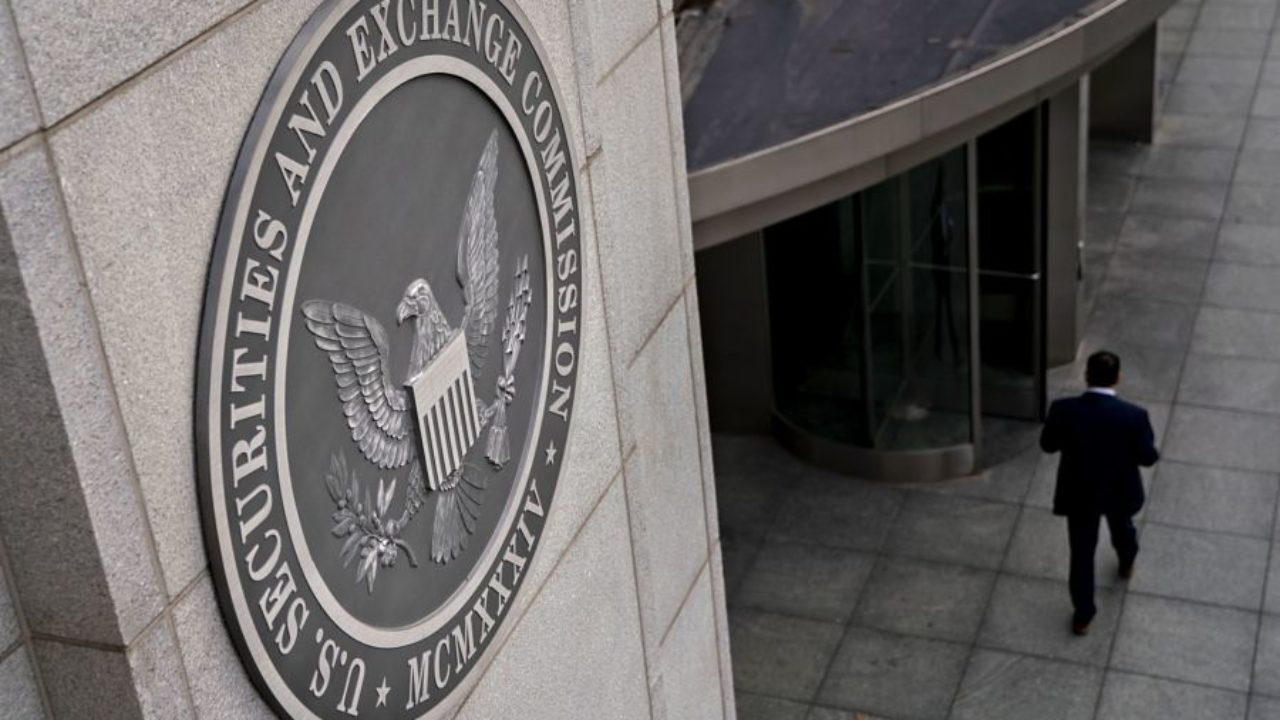SEC Charges Ideanomics, its former Chairman and CEO, Zheng (Bruno) Wu, current CEO, Alfred Poor, and former CFO, Federico Tovar with Accounting and Disclosure Fraud

On August 9, 2024, the Securities and Exchange Commission (“SEC“) announced settled fraud charges against Ideanomics, Inc., formerly known as Seven Stars Cloud Group, Inc., and its former Chairman and CEO, Zheng (Bruno) Wu, for misleading the public about the company’s financial performance between 2017 and 2019. The SEC also announced settled charges against Ideanomics’ current CEO, Alfred Poor, and former CFO, Federico Tovar, for their roles in the scheme. Read More
SEC Awards Whistleblower a Bounty of More Than $37 Million

On July 26, 2024, the Securities and Exchange Commission (SEC) announced an award of more than $37 million to a whistleblower whose information and assistance led to a successful SEC enforcement action.
The whistleblower persisted in reporting the misconduct internally, which led the employer to conduct its own investigation and eventually report the results to the Commission. This self-report caused an SEC investigation. Further, without the SEC whistleblower’s ongoing, extensive, and timely assistance, the SEC staff would not have learned the full context and extent of the employer’s misconduct. Read More
What are the SEC Reporting Requirements After My Form S-1 is Effective?

Once the SEC staff declares your company’s Securities Act registration statement on Form S-1 effective, the company becomes subject to the SEC’s reporting requirements under the Securities Exchange Act of 1934. These rules require your company to file annual reports on Form 10-K, quarterly reports on Form 10-Q and current reports on Form 8-K with the SEC on an ongoing basis.
If your company qualifies as a “smaller reporting company” or an “emerging growth company,” it will be eligible to follow scaled SEC reporting requirements for its reports. Read More
Why use a Direct Public Offering (DPO) to Go Public on the OTC Markets

An Initial Public Offering or IPO is used by issuers seeking to go public using an underwriter. IPOs are typically conducted by issuers listing on the NYSE Stock Exchange (“NYSE”) or NASDAQ Stock Markets (“NASDAQ”). Issuers most often use a Direct Public Offering or DPO in a going public transaction seeking quotation on the OTC Markets. Direct Public Offerings provide a means for a company to go public and sell its shares directly to investors without the use of an underwriter. Even after a Direct Public Offering, the issuer can plan to use the services of an underwriter in the future and/or uplist to NASDAQ or the NYSE.
With a Direct Public Offering, the company files a Form S-1 registration statement with the Securities and Exchange Commission (“SEC”) under the Securities Act of 1933, as amended (the “Securities Act”), if it is a domestic issuer. If the company is a foreign issuer, it can use SEC Form S-1 or Form F-1 for its registration statement.
Both Form S-1 and Form F-1 registration statements offer flexibility, and each can be used to register securities on its own behalf in an initial public offering, to register securities on behalf of its selling security holders in a secondary offering, or register securities on both its own behalf and for selling security holders.
A significant advantage of a Direct Public Offering using a registration statement on Form S-1 or Form F-1 is that the issuer can avoid many of the risks and expenses associated with reverse merger transactions. These can include undisclosed liabilities, sketchy corporate records, DTC Chills, and SEC trading suspensions. Both the NASDAQ and NYSE impose one-year waiting periods for companies after engaging in a reverse merger transaction. Read More
Are You Ready? T+1 Trade Settlement Begins Next Week

On May 21, 2024, Securities and Exchange Commission Chair Gary Gensler formally announced the U.S. securities market’s switch to a T+1 standard settlement cycle. “T+1” means all trades in all U.S. markets will be settled the day after execution. The change will become effective on Tuesday, May 28. Gensler explained briefly:
For everyday investors who sell their stock on a Monday, shortening the settlement cycle will allow them to get their money on Tuesday. Shortening the settlement cycle also will help the markets because time is money and time is risk. It will make our market plumbing more resilient, timely, and orderly. Further, it addresses one of the four areas the staff recommended the Commission address in response to the GameStop stock events of 2021. Read More
PCAOB Imposes a $400,000 Fine and Sanctions MaloneBailey, LLP for Pervasive Quality Control Violations

Less than a month after one of the biggest auditing firms in the public markets, BF Borgers, and its owner, Benjamin Borgers, were permanently banned and fined a combined $14 million by the Securities and Exchange Commission (the “SEC”) for massive quality control issues, another large auditing firm involved in the public markets is facing fines and sanctions, this time from the Public Company Accounting Oversight Board (PCAOB). On May 21, 2024, the PCAOB announced it was imposing a $400,000 fine and sanctions against MaloneBailey LLP (“MaloneBailey” or the “Firm”) for violations of PCAOB rules and quality control standards.
MaloneBailey is a public accounting firm headquartered in Houston, Texas. It is licensed to practice public accounting by the Texas State Board of Public Accountancy (License No. P05522), among other states.
According to the Disciplinary Order issued by the PCAOB, from 2018 to 2021, PCAOB inspection staff conducted three inspections of MaloneBailey. During each of these inspections, the PCAOB notified the firm of significant audit deficiencies that raised concerns about the firm’s engagement performance. Despite the firm’s awareness of these deficiencies and concerns, it failed to make effective changes to improve its system of quality control. Read More
SEC Issues BF Borgers Exemptive Order For SEC Reporting Companies

On May 20, 2024, the Securities and Exchange Commission (“SEC”) provided exemptive relief to certain SEC reporting companies affected by the SEC’s permanent suspension of BF Borgers CPA PC and its owner, Benjamin F. Borgers (together, “BF Borgers”), from appearing and practicing before the SEC as an accountant. It is expected that public companies that previously retained BF Borgers will need to engage a new, qualified, independent, PCAOB-registered public accountant to audit or review the financial information included in their SEC filings to comply with SEC Reporting Requirements. Read More
CAT’s Cradle – Ongoing Problems with the SEC’s Consolidated Audit Trail

In July 2012, the SEC adopted a new Rule 613 under Section 11A(a)(3)(B) of the Securities Exchange Act of 1934 (“Exchange Act”). It would require national securities exchanges and national Self-Regulatory Organizations (“SROs’) “to act jointly in developing a national market system (‘NMS’) plan to develop, implement, and maintain a consolidated order tracking system, or consolidated audit trail, with respect to the trading of NMS securities.” While the Financial Industry Regulatory Authority (“FINRA”) and the SROs did have their own audit trail systems, they were “limited in their scope in varying ways.” The answer was to create a new, truly comprehensive system:
A consolidated audit trail would significantly aid in SRO efforts to detect and deter fraudulent and manipulative acts and practices in the marketplace, and generally to regulate their markets and members. In addition, such an audit trail would benefit the Commission in its market analysis efforts, such as investigating and preparing market reconstructions and understanding causes of unusual market activity. Read More
SEC permanently bans BF Borgers and its owner Benjamin Borgers and fines them a combined $14 million for accounting fraud

On May 3, 2024, the Securities and Exchange Commission (the “SEC“) charged audit firm BF Borgers and Its owner, Benjamin F. Borgers (together, “Respondents”), with Massive Fraud affecting more than 1,500 SEC filings. The SEC found that Borgers committed deliberate and systemic failures to comply with Public Company Accounting Oversight Board (PCAOB) standards in its audits and reviews incorporated in more than 1,500 SEC filings from January 2021 through June 2023.
The SEC also charged the Respondents with falsely representing to their clients that the firm’s work would comply with PCAOB standards; fabricating audit documentation to make it appear that the firm’s work did comply with PCAOB standards; and falsely stating in audit reports included in more than 500 public company SEC filings that the firm’s audits complied with PCAOB standards.
According to the Order against the Respondents, from January 2021 through June 2023, BF Borgers had 350 clients who were required under the SEC’s rules and regulations to have their financial statements audited and/or reviewed by a PCAOB-registered accounting firm in accordance with PCAOB standards and to incorporate those financial statements into filings made with the SEC. Read More
SEC Nails BF Borgers and Ben Borgers – Issuers Must Obtain New Auditors

On May 3, 2024, the Securities and Exchange Commission provided a statement for issuers impacted by its enforcement action against BF Bofgers CPA PC. According to the SEC Action against BF Borgers, approximately 500 issuers used the services of BF Borgers for their audits between January 2021 through June 2023.
On May 3, 2024, the SEC entered an order instituting settled administrative and cease-and-desist proceedings[2] against BF Borgers CPA PC and its sole audit partner Benjamin F. Borgers CPA (individually and together, “BF Borgers”), finding that, among other things, BF Borgers:
- deliberately and systematically failed to conduct audits and quarterly reviews in accordance with applicable Public Company Accounting Oversight Board (“PCAOB”) standards;
- fraudulently issued audit reports that falsely represented that audits had been performed in accordance with PCAOB standards; and
- caused audit clients to violate certain provisions of the Exchange Act and rules thereunder, including Exchange Act Sections 13(a) and 15(d).
The Order denies BF Borgers the privilege of appearing or practicing before the Commission as an accountant. As a result, BF Borgers may not participate in or perform the audit or review of financial information included in Commission filings, issue audit reports included in Commission filings, provide consents with respect to audit reports, or otherwise appear or practice before the Commission.
A significant number of issuers will be impacted by the Order against Borgers. The SEC statement was issued to assist issuers in complying with their disclosure and reporting obligations in light of the Order involving BF Borgers. We encourage all issuers that have previously engaged BF Borgers as their independent auditor to consider the findings and sanctions discussed in the Order, taking into account their disclosure obligations under the federal securities laws. Read More
What are SEC Periodic Reporting Requirements? Securities Lawyer 101

Companies become subject to the SEC’s periodic reporting requirements in several ways, including by filing a registration under the Securities Act of 1933, as amended or pursuant to the Securities Exchange Act of 1934. The SEC’s periodic reporting rules require that publicly traded companies disclose a wealth of information to the public. Periodic reporting also requires that these reports be written in plain English. Understanding these reports helps investors make informed decisions regarding whether to buy, sell or hold a company’s securities.
Periodic reports serve as a platform for issuers to provide shareholders with transparency by sharing their stories. However, it’s important to note that companies that provide materially false or misleading statements or omit material information necessary to render a report not misleading in their periodic reports can face serious liabilities under federal and state securities laws. Investors can access a company’s Form 10-K, Form 10-Q and Form 8-K filings on the SEC’s EDGAR database to ensure they are well-informed. Read More
Reg A+ Securities Offerings and FAST Act

Prospective For Underwriters & Broker-Dealers: Due Diligence Considerations
Unlike traditional Initial Public Offerings (“IPOs”), there is no potential liability for issuers under Section 11 of the Securities Act in connection with Regulation A+ offerings. Sellers in Regulation A+ offerings are potentially liable under Section 12(a)(2) of the Securities Act for materially misleading statements in the offering circular or in oral communications. Accordingly, the potential Securities Act liability of issuers under a Regulation A+ offering is less than in connection with a Rule 506 offering but greater than in connection with an IPO.
As such, underwriters and broker-dealers participating in a Regulation A+ offering should require a level of due diligence and disclosure comparable to that of offerings registered with the Securities & Exchange Commission (“SEC”).
Tier I and Tier II offerings will be subject to review by the Financial Industry Regulatory Authority (“FINRA”) if broker-dealers participate in the Regulation A+ offering. Read More























OTC Markets Group Guidance on Dilution Risk with Respect to OTCQX and OTCQB Applicants
OTC Markets offers three unique marketplaces for trading over-the-counter (OTC) stocks: the OTC Pink Market, the OTCQB Market and the OTCQX Market. The OTCQB Market and the OTCQX Market offer many benefits not offered by the OTC Pink Market, including:
The OTCQX is the top tier of the OTC Markets Group’s three marketplaces, so it has the strictest eligibility requirements. The following chart provides a snapshot comparison of the current Eligibility Standards for US Issuers to be listed on either the OTCQB or OTCQX. Read More